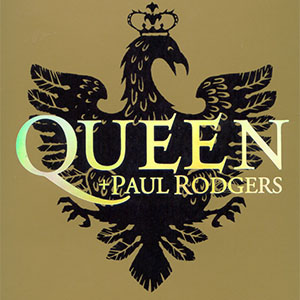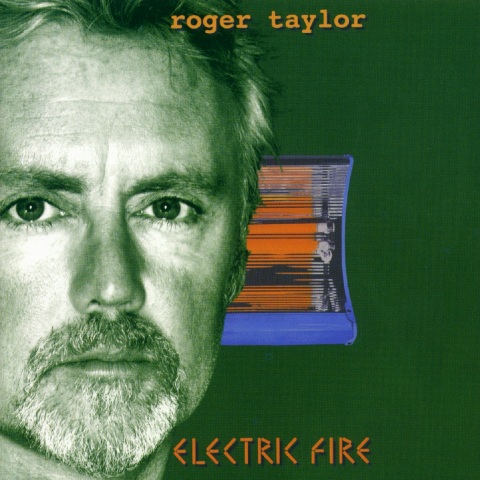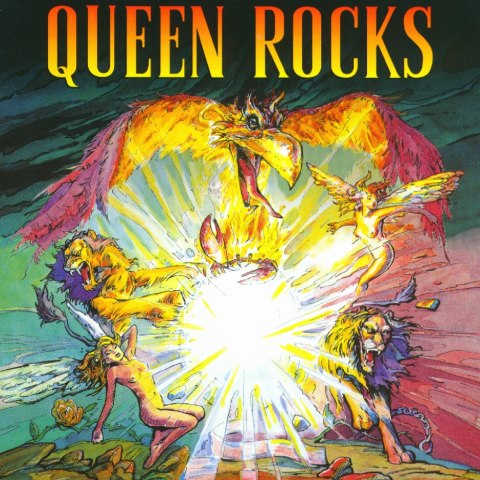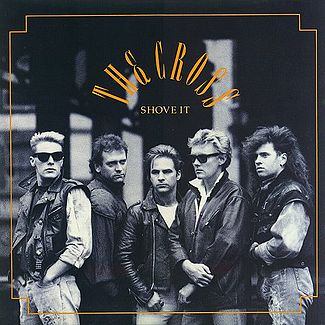03-31-2006 – San Diego Union-Tribune
Freddie Mercury is irreplaceable, yet Paul Rodgers gives band new life
Baloney!
That’s what Queen’s drummer, Roger Taylor, has to say about some of the notorious tales of rock ‘n’ roll excess that still follow his now-reactivated band around, 15 years after the death of its unabashedly hedonistic lead singer and frontman, Freddie Mercury.
“A lot of the more extreme examples — involving dwarves and bald heads and cocaine — are fiction,” said Taylor, 56, who performs with Queen — now fronted by Paul Rodgers — tomorrow night at Cox Arena.
Yet this veteran sticks man and sometime-singer allows that Queen’s reputation for offstage debauchery is not without justification. The band’s exploits of the past have become the stuff of legend, although they are unlikely to be published in any publication not delivered in plain brown wrapping.
“I laugh about it now,” Taylor said with a knowing chuckle. “It was ridiculous, and it was calculatedly decadent. It was pretty horrendous, really. I remember feeling a bit ill at times. You know, in those days, the thing was to live it. And we lived it and loved it, and it was great. But that is another era.”
Regardless, there is at least one tale in Queen lore that is anything but baloney. It occurred at the now-infamous 1978 party the band threw in New Orleans to celebrate the release of its seventh album, “Jazz,” and is so silly and surreal it sounds like a newly unearthed scene from “Spinal Tap — The Director’s Cut.”
“I remember there was one guy there whose sole function in life was to lie under cold meat, which in this case was liver paté,” Taylor recalled, speaking from his English country home, 40 miles outside London. “He’d lie under it, and when people would come up, he’d shudder and the meats would move. In fact, his motto was: `I make the meats move.'”
And where exactly did Queen find him?
“We had a guy on our payroll whose job was specifically to find people like that (to be part of the entertainment),” Taylor replied.
“Especially with Freddie, we did have unlimited reserves of arrogance. I look back and can’t believe how arrogant we were. Freddie used to say: `My dear, talent will (win) out!'”
End of an era
Mercury died of complications from AIDS in 1991, 18 years after the release of Queen’s self-titled debut album. An unusually versatile and gifted singer, he was as comfortable and convincing performing a ballad like “Under Pressure” as he was ripping through a blistering hard-rock song like “Killer Queen” or gliding through a sleek dance-floor favorite like “Staying Power.”
Mercury’s powerful vocals also graced such classic Queen songs as “We Will Rock You,” “Another One Bites the Dust,” “Crazy Little Thing Called Love” and “Bohemian Rhapsody,” and he had a profound influence on everyone from Axl Rose and George Michael to Spinal Tap. All three appeared in 1992 at the internationally televised AIDS Awareness fund-raising concert, which was held in Mercury’s honor at London’s Wembley Stadium. At the show, which also featured such admirers as Metallica, David Bowie, Elton John and Liza Minnelli, Spinal Tap announced that it was cutting its set by 35 songs, “because Freddie would have wanted it this way.”
This concert aside, the demise of its charismatic singer brought Queen shuddering to an immediate halt. Taylor and the band’s two other surviving founding members — guitarist Brian May and bassist John Deacon — realized it would be impossible to find anyone who could fill Mercury’s shoes (or platform boots), in much the same way Led Zeppelin quickly called it quits after the 1980 death of drummer John Bonham.
“I’d say it was very comparable to Zeppelin,” Taylor agreed. “We said `That’s it. Freddie’s irreplaceable.’ At the same time, people were interested in the music (of Queen). And Brian and I felt a responsibility to keep the music alive, not to make a living, although it made us a very good living.
“We were more shocked and devastated than we realized. It took Brian and me five years each to recover, and I don’t think John (Deacon) ever got over it. We’d all been living so close together, for so many years, that Freddie’s death was just like a massive hole in the wallpaper. I don’t think we even missed making albums or touring. But we missed him because he was part of our mental wallpaper.”
With Mercury at the fore, Queen was one of the biggest rock bands ever, with worldwide album sales now in excess of 150 million. The band has spent more time on the English album charts than even The Beatles (1,322 weeks to the Fab Four’s 1,293 weeks). Its multigenerational following has been reborn since Taylor and May’s decision to reactivate Queen, with Rodgers, for a one-off European tour last year, which has since extended into 2006 and across several continents.
The addition of solo artist Rodgers, the former lead singer in the English bands Free and Bad Company, came as a surprise to many.
“If anyone would have ever told me I’d be taking Freddie’s place in Queen, I would have laughed. I would have said: `That’s ridiculous! How could that possibly happen?'” said Rodgers, 56, whose gruff, blues-drenched rock vocal style is far removed from Mercury’s soaring, quasi-operatic style.
But after teaming with May for a few songs at a 2004 London concert honoring the 50th anniversary of the Fender Stratocaster guitar, Rodgers found he had an instant musical rapport with the guitarist. Later that same year, he and May teamed with Taylor to perform on the UK Music Hall of Fame TV special, and Queen was officially reborn.
Since then, the revamped Queen has released a live double album and sold out numerous concerts. The fact that Rodgers sounds nothing like Mercury is viewed as a major advantage by all concerned.
“The last thing we wanted was a Freddie Mercury impersonator, or anybody who remotely resembled him,” Taylor said. “Paul has an extraordinary range, as high as Freddie’s. But it gives our music a bluesy edge with this soul-blues twist to it that is wonderful. Freddie was a huge fan of Paul’s as well, so I know he would have approved. And it’s great to have someone who’s been Paul Rodgers for longer than we’ve been Queen.”
Rodgers, who once co-led a short-lived band, The Firm, with former Zeppelin guitarist Jimmy Page, agreed.
“It’s good that I have a different voice,” he said. “Because if I thought too much about the comparisons … well, people don’t care. The fans have been incredibly supportive, worldwide. They don’t expect me to be Freddie Mercury, in the same way my fans don’t expect Brian to be Jimmy Page or (Bad Company guitarist) Mick Ralphs.
“It’s a matter of: `Do you like it, and are you having fun?’ Because the fun factor is very important. With Freddie, it was the same — a sense of joy with all the songs. And it’s very important to us that we’re all friends; that’s what makes it work.”
According to Taylor, all four of Queen’s original members were big fans of Rodgers’ first band of note, the blues-rocking Free. Was Rodgers, in turn, a fan of Queen?
“I can’t say I ran out and bought every album of Queen’s,” he replied. “But whenever I heard them, I always had great respect for their work. They had great production, fantastic guitars, terrific vocal harmonies, and their quality control was always first-rate.
“I’m taking the role that I know best, and that is of lead singer. I like to be center stage and singing my heart out, and that’s really all I’m doing. (Queen’s) `The Show Must Go On’ is terrific, and we do it (in concert) after `Bohemian Rhapsody.’ It’s a very telling position. `The Show Must Go On,’ not only this rock show, or Queen must go on, but life itself. On any level, with anything you do, the show must go on. And my responsibility is to deliver the goods.”




